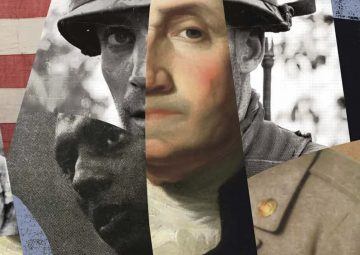Daniel Immerwahr in The Nation:
 In 1931, historian James Truslow Adams published The Epic of America, a one-volume history of the country. At more than 400 pages, it was a formidable volume, but Adams’s lyrical prose and insistence on putting everyday people at the center of his narrative drew readers in. They took inspiration from his idea of an “American dream,” a phrase he coined for the book and intended as its original title. As Adams saw it, the American dream—the notion that all who lived in the United States would be able to pursue their ambitions “regardless of the fortuitous circumstances of birth or position”—wasn’t empty talk. It had shaped the country’s past, and it might well shape its future.
In 1931, historian James Truslow Adams published The Epic of America, a one-volume history of the country. At more than 400 pages, it was a formidable volume, but Adams’s lyrical prose and insistence on putting everyday people at the center of his narrative drew readers in. They took inspiration from his idea of an “American dream,” a phrase he coined for the book and intended as its original title. As Adams saw it, the American dream—the notion that all who lived in the United States would be able to pursue their ambitions “regardless of the fortuitous circumstances of birth or position”—wasn’t empty talk. It had shaped the country’s past, and it might well shape its future.
Adams wasn’t the only one trying to cram the national narrative between two covers; it was a “crowded field,” he noted. Writing single-volume overviews of US history was once a venerable tradition, and such masters of the craft as Samuel Eliot Morison, Charles and Mary Beard, and Carl Degler offered their own additions to it. Many have faded with time, but one—Howard Zinn’s A People’s History of the United States, published in 1980—has not. Zinn’s history was bleak, a story of the tyranny of the powerful and of the popular movements that fought back. But with the country still smarting from Watergate and the rise of Ronald Reagan portending a new stratification of wealth, the book’s themes suited the times. For many readers, it appeared that the mask had finally slipped, that history had been revealed as a violent struggle between the elites and the masses.
More here.
